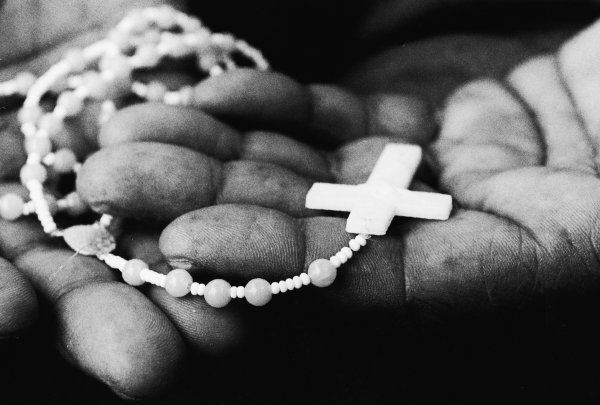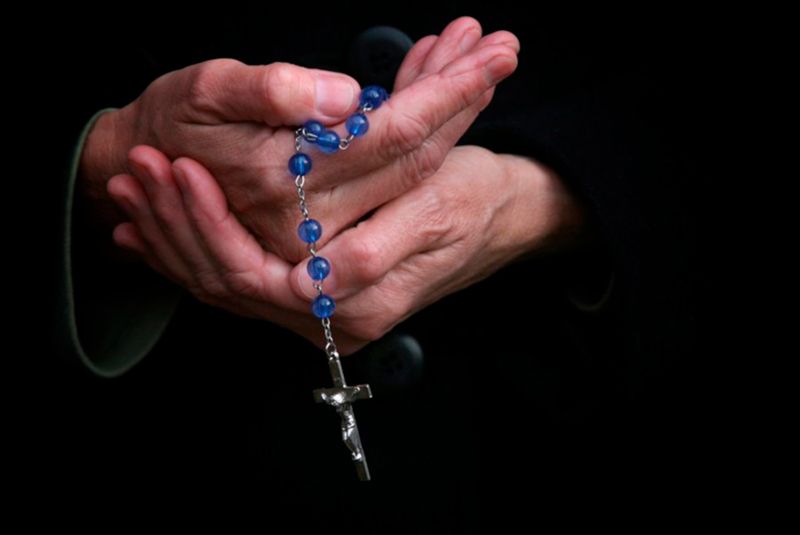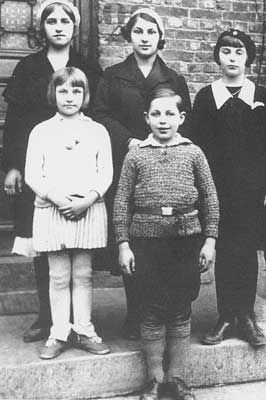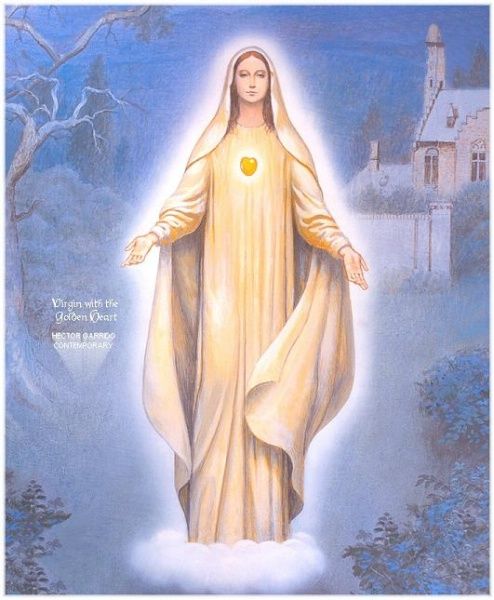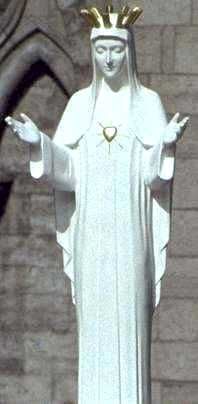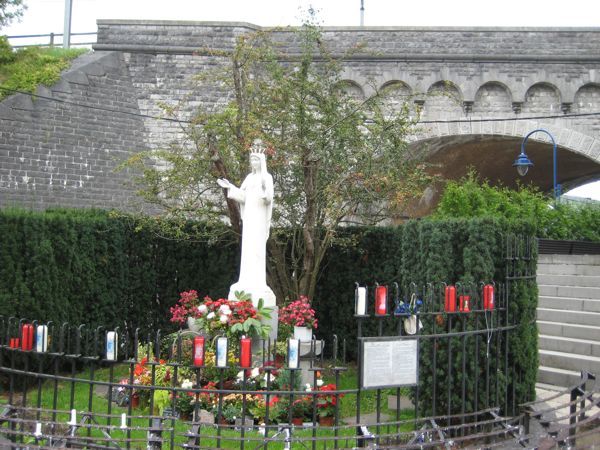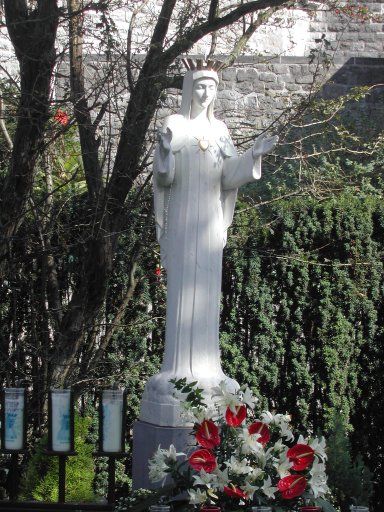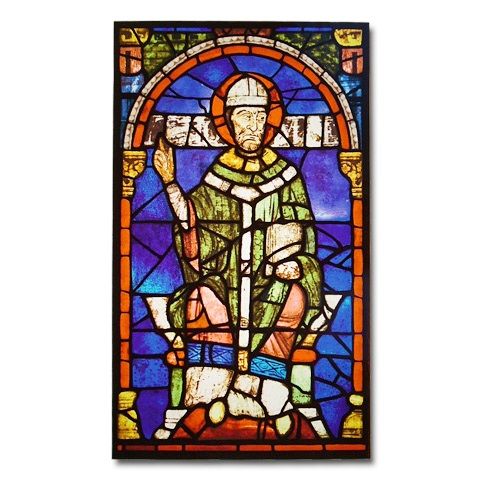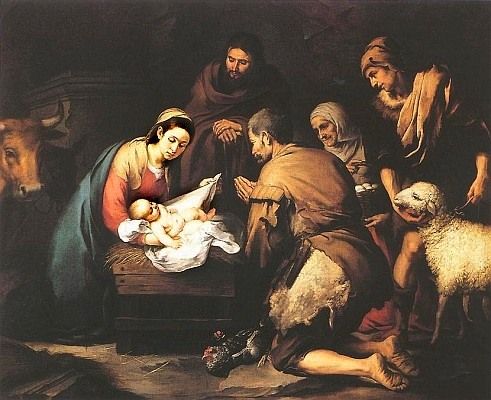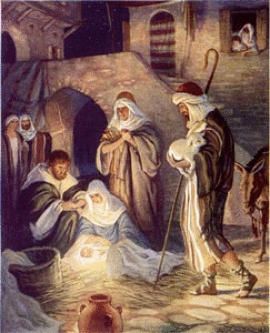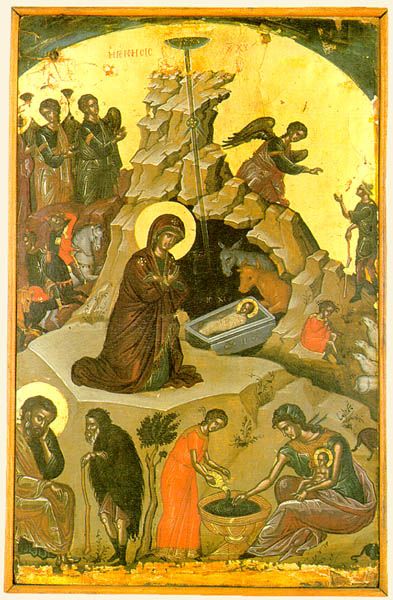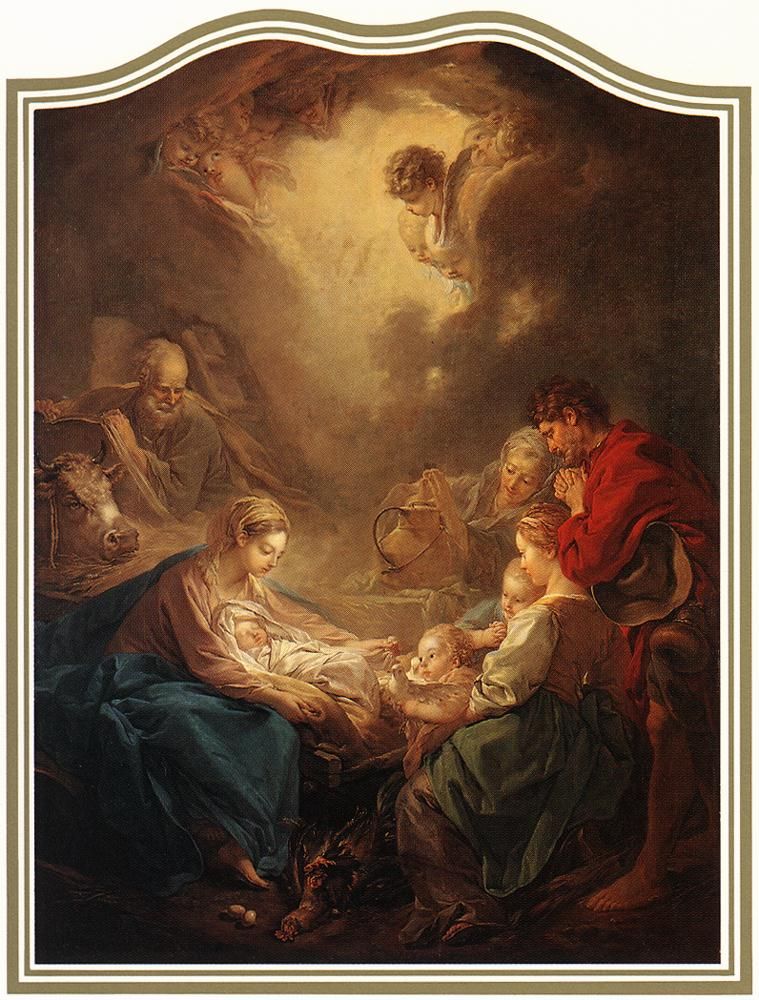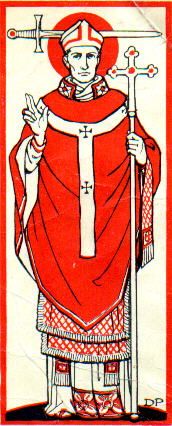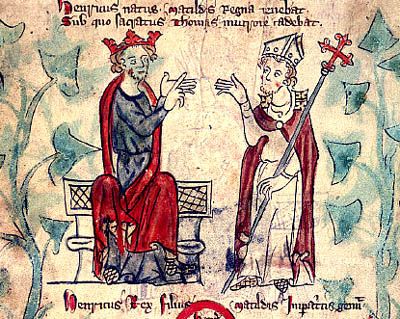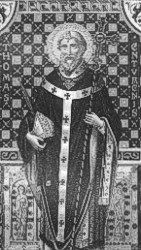Today officially marks day 365 of 365—the last day of my ‘year in prayer!’
What an amazing year it has been—one that moved both slowly and incredibly fast! Over the course of this year, I have been graced with a deeper connection with Our Lord and Blessed Mother, both through daily prayer, and also the privilege of hearing from, meeting, and praying for all those who submitted prayer intentions. Many of those whom I was honored to pray for sent follow-up messages, updating me on their lives, the work of the Lord in their lives, and offering support and encouragement during my spiritual jounrey. For these messages, I am especially grateful.
Never could I have anticipated the reach of one man’s writings on the Holy Rosary, Catholic saints, and the Gospel of Jesus Christ! This humble blog has grown throughout the year, with people “subscribing” via email, joining us on our facebook page, and nearly 20,000 readers visiting the blog itself! These readers came from all over the world: over 100 countries, on 6 continents, including:
Albania
Argentina
Australia
Austria
Bahrain
Barbados
Belgium
Belize
Bermuda
Bosnia and Herzegovina
Botswana
Brazil
Bulgaria
Burkina Faso
Cameroon
Canada
Chile
Colombia
Costa Rica
Croatia
Cyprus
Czech Republic
Denmark
Dominica
Dominican Republic
Ecuador
Egypt
Ethiopia
Fiji
Finland
France
Germany
Ghana
Great Britain
Greece
Guam
Guatelmala
Guyana
Honduras
Hong Kong
Hungary
Iceland
India
Indonesia
Iraq
Ireland
Israel
Italy
Jamaica
Japan
Jordan
Kenya
Korea
Kuwait
Latvia
Lebanon
Lithuania
Luxumburg
Macedonia
Malaysia
Malta
Mexico
Morocco
Namibia
Netherlands
Netherlands Antilles
New Zealand
Nigeria
Northern Mariana Islands
Norway
Oman
Pakistan
Panama
Peru
Philippines
Poland
Portugal
Puerto Rico
Qatar
Romania
Russian Federation
Rwanda
Samoa
San Marino
Saudi Arabia
Singapore
Slovakia
SloveniaSoloman Islands
South Africa
Spain
Sri Lanka
Sweden
Switzerland
Taiwan
Thailand
Trinidad and Tobago
Turkey
Uganda
Ukraine
United Arab Emirates
United States of America
US Virgin Islands
Venezuela
Vietnam
Zimbabwe
Of course, there may be some I missed over the course of the year!
Together with some local friends, and made possible through the donations of readers, I also constructed over 1,000 mission-style Rosaries this year—sent to both military personnel deployed overseas and to international missionaries to distribute amongst those they minister to.
In short, through the grace of the Lord, I met my goals this year—to pray the Rosary every day, to blog about my experience every day (665 posts, to be precise!), to construct at least 1,000 Rosaries! And I thank you all—all who have read, assisted, encouraged, supported, submitted, subscribed, and commented—for your participation in this amazing experience!
Tomorrow begins 2011… and with my first year officially concluced, many have inquired as to what will happen to the blog. Truth be told, I’m still not sure myself! I place the continuation of this work in the hands of the Lord, and as the Spirit continues to move me, so will the blog continue to exist… although possibly in a different format or publishing frequency!
As we look towards the New Year, I wish you all a blessed, grace-filled, safe, and spiritually meaningful 2011. God Bless each and every one of you, and may our Blessed Mother surround you were her love and grace now, and throughout the year.
In Christ,
jacob
A Prayer for the New Year
O sacred and adorable Trinity, hear our prayers on behalf of our holy Father the Pope, our Bishops, our clergy, and for all that are in authority over us. Bless, we beseech Thee, during the coming year, the whole Catholic Church; convert heretics and unbelievers; soften the hearts of sinners so that they may return to Thy friendship; give prosperity to our country and peace among the nations of the world; pour down Thy blessings upon our friends, relatives, and acquaintances, and upon our enemies, if we have any; assist the poor and the sick; have pity on the souls of those whom this year has taken from us; and do Thou be merciful to those who during the coming year will be summoned before Thy judgment seat. May all our actions be preceded by Thy inspirations and carried on by Thy assistance, so that all our prayers and works, having been begun in Thee, may likewise be ended through Thee. Amen.
Friday, December 31, 2010
Our Lady of Beauraing: "Pray Always."
Today, December 31, marks the anniversary of the appearance of Our Blessed Mother to five children in Beauraing, Belgium in 1932. Our Lady of Beauraing, also known as the “Virgin of the Golden Heart,” had appeared to Fernande, Gilberte, and Albert Voisins and Andree and Gilberte Degeimbres the over the previous weeks, beginning on November 29. On that day, the children saw a “beautiful lady” walking through the air above a railroad bridge. Dressed in a flowing white gown, the lady emanated a radiant glow, and smiled at them as she approached. She was observed to be praying, never spoke, and simply gazed upon them with beautiful blue eyes.
Following the initial apparition, Our Blessed Mother continued to appear to the children (on December 2, December 8, December 21, December 23, December 28, and December 30), confirming her identity as the Immaculate Virgin, and requesting that a chapel be built. She further implored them to “Always be good.” On the previous evening, December 30, the Virgin of the Golden Heart had instructed the children, “Pray. Pray very much.”
Today, on the last day of 1932, Our Blessed Mother again appeared to the children as they were praying the Rosary in the convent garden. Alighting on the hawthorn tree, she smiled gently at them. The children, having been told that the apparitions were drawing to a close, were filled with peace and joy, and were especially grateful to be in the presence of her Immaculate Heart. Whereas only Fernande had been graced with a vision of Mary’s radiant, golden heart on the previous occasions, at this point, all five children witnessed its golden glow.
When the children were done praying, Mary spoke. She implored, “Pray always,” before leaving them. Our Blessed Mother graced us with her golden heart, encouraging us to sacrifice ourselves for the Lord, and for the salvation of the world. We pray today, in the words of Our Mother, to find the strength and virtue “to be good” in the eyes of the Lord.
Our Lady of Beauraing, Immaculate Virgin, bring to Jesus, your Son, all the intentions that we entrust to you today. Mother of the Golden Heart, reflection of the Father's tenderness, look upon the men and women of our time with love and fill them with the joy of your presence. You, who promised to convert sinners, help us discover the infinite mercy of our God. Awaken within us the grace of conversion so that our lives may be a reflection of that mercy. Make every moment of our existence "a yes" to the question you ask today: "Do you love my Son? Do you love me?" Then the kingdom of Jesus will come to the world. Amen.
Day 365 of 365
Prayer Intentions: Lives of Prayer; Penance for Sinners; Repentance and redemption in the new year.
Requested Intentions: Successful completion of nursing exam (M); For a daughter in an abusive relationships (J); For the consecration of a granddaughter to Our Blessed Mother (A); For a successful marriage (S); Restoration of a teaching job (L); Health and spirituality of family members (R); For a return to health for a friend (C); Healing from cancer of a brother-in-law (C); Healthy relationship; Joy in everyday life (J); Successful employment and financial assistance for education (M); For the return home of father and husband suffering from mental illness (C); Successful passing of examination; Employment for Son (J); Healing of a family and son (S); Successful marriage (G); End to husband’s addictions; Son’s employment (M); Freedom from financial burdens (M); Healing after a miscarriage (E); For healing of friend; successful resolution of legal matter (A); Complete healing of a friend with pancreatic cancer (J); Healing of a father following stroke (S).
Following the initial apparition, Our Blessed Mother continued to appear to the children (on December 2, December 8, December 21, December 23, December 28, and December 30), confirming her identity as the Immaculate Virgin, and requesting that a chapel be built. She further implored them to “Always be good.” On the previous evening, December 30, the Virgin of the Golden Heart had instructed the children, “Pray. Pray very much.”
Today, on the last day of 1932, Our Blessed Mother again appeared to the children as they were praying the Rosary in the convent garden. Alighting on the hawthorn tree, she smiled gently at them. The children, having been told that the apparitions were drawing to a close, were filled with peace and joy, and were especially grateful to be in the presence of her Immaculate Heart. Whereas only Fernande had been graced with a vision of Mary’s radiant, golden heart on the previous occasions, at this point, all five children witnessed its golden glow.
When the children were done praying, Mary spoke. She implored, “Pray always,” before leaving them. Our Blessed Mother graced us with her golden heart, encouraging us to sacrifice ourselves for the Lord, and for the salvation of the world. We pray today, in the words of Our Mother, to find the strength and virtue “to be good” in the eyes of the Lord.
Our Lady of Beauraing, Immaculate Virgin, bring to Jesus, your Son, all the intentions that we entrust to you today. Mother of the Golden Heart, reflection of the Father's tenderness, look upon the men and women of our time with love and fill them with the joy of your presence. You, who promised to convert sinners, help us discover the infinite mercy of our God. Awaken within us the grace of conversion so that our lives may be a reflection of that mercy. Make every moment of our existence "a yes" to the question you ask today: "Do you love my Son? Do you love me?" Then the kingdom of Jesus will come to the world. Amen.
Day 365 of 365
Prayer Intentions: Lives of Prayer; Penance for Sinners; Repentance and redemption in the new year.
Requested Intentions: Successful completion of nursing exam (M); For a daughter in an abusive relationships (J); For the consecration of a granddaughter to Our Blessed Mother (A); For a successful marriage (S); Restoration of a teaching job (L); Health and spirituality of family members (R); For a return to health for a friend (C); Healing from cancer of a brother-in-law (C); Healthy relationship; Joy in everyday life (J); Successful employment and financial assistance for education (M); For the return home of father and husband suffering from mental illness (C); Successful passing of examination; Employment for Son (J); Healing of a family and son (S); Successful marriage (G); End to husband’s addictions; Son’s employment (M); Freedom from financial burdens (M); Healing after a miscarriage (E); For healing of friend; successful resolution of legal matter (A); Complete healing of a friend with pancreatic cancer (J); Healing of a father following stroke (S).
Thursday, December 30, 2010
Our Lady of Beauraing: "Pray. Pray very much."
Today, December 30, marks the anniversary of the appearance of Our Blessed Mother to five children in Beauraing, Belgium in 1932. Our Lady of Beauraing, also known as the “Virgin of the Golden Heart,” had appeared to Fernande, Gilberte, and Albert Voisins and Andree and Gilberte Degeimbres the over the previous weeks, beginning on November 29. On that day, the children saw a “beautiful lady” walking through the air above a railroad bridge. Dressed in a flowing white gown, the lady emanated a radiant glow, and smiled at them as she approached. She was observed to be praying, never spoke, and simply gazed upon them with beautiful blue eyes.
Following the initial apparition, Our Blessed Mother continued to appear to the children (on December 2, December 8, December 21, December 23, and December 28), confirming her identity as the Immaculate Virgin, and requesting that a chapel be built. She further implored them to “Always be good.” The apparitions did not occur every night, but the children visited the convent garden, hoping to see her each night.
On December 29th, the Blessed Virgin had appeared to the children, but remained silent while they prayed the Rosary. As she opened her arms, spreading them in front of her, as was her usual gesture of farewell to the children, Fernande was transfixed by the image that greeted her. Our Lady’s heart was visible—golden, and radiant, surrounded by glittering rays of light, emanating from the center and spreading into the world. Without doubt, Fernande recognized the Immaculate Heart of Mary. Over the next several days, the other children would report seeing the same vision of Our Blessed Mother’s golden heart.
On December 30th, Our Lady delivered her message of prayer, penance, and redemption. Similar to the messages she delivered at Lourdes and Fatima (although predating Fatima), Our Blessed Mother said to the children: “Pray. Pray very much.” She would repeat these instructions in the next several apparitions—although, as she had told the children, they would soon be finished.
Our Blessed Mother graced us with her golden heart, encouraging us to sacrifice ourselves for the Lord, and for the salvation of the world. We pray today, in the words of Our Mother, to find the strength and virtue “to be good” in the eyes of the Lord.
Our Lady of Beauraing, Immaculate Virgin, bring to Jesus, your Son, all the intentions that we entrust to you today. Mother of the Golden Heart, reflection of the Father's tenderness, look upon the men and women of our time with love and fill them with the joy of your presence. You, who promised to convert sinners, help us discover the infinite mercy of our God. Awaken within us the grace of conversion so that our lives may be a reflection of that mercy. Make every moment of our existence "a yes" to the question you ask today: "Do you love my Son? Do you love me?" Then the kingdom of Jesus will come to the world. Amen.
Day 364 of 365
Prayer Intentions: Lives of Prayer; Penance for Sinners
Requested Intentions: Successful completion of nursing exam (M); For a daughter in an abusive relationships (J); For the consecration of a granddaughter to Our Blessed Mother (A); For a successful marriage (S); Restoration of a teaching job (L); Health and spirituality of family members (R); For a return to health for a friend (C); Healing from cancer of a brother-in-law (C); Healthy relationship; Joy in everyday life (J); Successful employment and financial assistance for education (M); For the return home of father and husband suffering from mental illness (C); Successful passing of examination; Employment for Son (J); Healing of a family and son (S); Successful marriage (G); End to husband’s addictions; Son’s employment (M); Freedom from financial burdens (M); Healing after a miscarriage (E); For healing of friend; successful resolution of legal matter (A); Complete healing of a friend with pancreatic cancer (J); Healing of a father following stroke (S).
Following the initial apparition, Our Blessed Mother continued to appear to the children (on December 2, December 8, December 21, December 23, and December 28), confirming her identity as the Immaculate Virgin, and requesting that a chapel be built. She further implored them to “Always be good.” The apparitions did not occur every night, but the children visited the convent garden, hoping to see her each night.
On December 29th, the Blessed Virgin had appeared to the children, but remained silent while they prayed the Rosary. As she opened her arms, spreading them in front of her, as was her usual gesture of farewell to the children, Fernande was transfixed by the image that greeted her. Our Lady’s heart was visible—golden, and radiant, surrounded by glittering rays of light, emanating from the center and spreading into the world. Without doubt, Fernande recognized the Immaculate Heart of Mary. Over the next several days, the other children would report seeing the same vision of Our Blessed Mother’s golden heart.
On December 30th, Our Lady delivered her message of prayer, penance, and redemption. Similar to the messages she delivered at Lourdes and Fatima (although predating Fatima), Our Blessed Mother said to the children: “Pray. Pray very much.” She would repeat these instructions in the next several apparitions—although, as she had told the children, they would soon be finished.
Our Blessed Mother graced us with her golden heart, encouraging us to sacrifice ourselves for the Lord, and for the salvation of the world. We pray today, in the words of Our Mother, to find the strength and virtue “to be good” in the eyes of the Lord.
Our Lady of Beauraing, Immaculate Virgin, bring to Jesus, your Son, all the intentions that we entrust to you today. Mother of the Golden Heart, reflection of the Father's tenderness, look upon the men and women of our time with love and fill them with the joy of your presence. You, who promised to convert sinners, help us discover the infinite mercy of our God. Awaken within us the grace of conversion so that our lives may be a reflection of that mercy. Make every moment of our existence "a yes" to the question you ask today: "Do you love my Son? Do you love me?" Then the kingdom of Jesus will come to the world. Amen.
Day 364 of 365
Prayer Intentions: Lives of Prayer; Penance for Sinners
Requested Intentions: Successful completion of nursing exam (M); For a daughter in an abusive relationships (J); For the consecration of a granddaughter to Our Blessed Mother (A); For a successful marriage (S); Restoration of a teaching job (L); Health and spirituality of family members (R); For a return to health for a friend (C); Healing from cancer of a brother-in-law (C); Healthy relationship; Joy in everyday life (J); Successful employment and financial assistance for education (M); For the return home of father and husband suffering from mental illness (C); Successful passing of examination; Employment for Son (J); Healing of a family and son (S); Successful marriage (G); End to husband’s addictions; Son’s employment (M); Freedom from financial burdens (M); Healing after a miscarriage (E); For healing of friend; successful resolution of legal matter (A); Complete healing of a friend with pancreatic cancer (J); Healing of a father following stroke (S).
Wednesday, December 29, 2010
Saint Thomas Becket: Sermon for Christmas Day
Today, December 29, we celebrate the feast day of Saint Thomas Becket (Thomas á Becket , 1117-1173), Archbishop of Canterbury, and martyr of the Church. Saint Thomas withstood pressures from King Henry II, defending the sanctity and sovereignty of the Church. His life is a study in steadfastness and courage, from which we draw inspiration.
Below, a sermon preached by the Archbishop of Canterbury on Christmas Morning, 1170. During this Christmas season, we read these words, spoken over 800 years ago with the same joy and wonder with which they were delivered!
THE ARCHBISHOP preaches in the Cathedral on Christmas Morning, 1170
'Glory to God in the highest, and on earth peace, good will toward men.' The fourteenth verse of the second chapter of the Gospel according to Saint Luke. In the Name of the Father, and of the Son, and of the Holy Ghost. Amen.
Dear children of God, my sermon this morning will be a very short one. I wish only that you should ponder and meditate the deep meaning and mystery of our masses of Christmas Day. For whenever Mass is said, we re-enact the Passion and Death of Our Lord; and on this Christmas Day we do this in celebration of His Birth. So that at the same moment we rejoice in His coming for the salvation of men, and offer again to God His Body and Blood in sacrifice, oblation and satisfaction for the sins of the whole world. It was in this same night that has just passed, that a multitude of the heavenly host appeared before the shepherds at Bethlehem, saying, 'Glory to God in the highest, and on earth peace, good will toward men'; at this same time of all the year that we celebrate at once the Birth of Our Lord and His Passion and Death upon the Cross. Beloved, as the World sees, this is to behave in a strange fashion. For who in the World will both mourn and rejoice at once and for the same reason? For either joy will be overborne by mourning, or mourning will be cast out by joy; so it is only in these our Christian mysteries that we can rejoice and mourn at once for the same reason. 'But think for a while on the meaning of this word 'peace.' Does it seem strange to you that the angels should have announced Peace, when ceaselessly the world has been stricken with War and the fear of War? Does it seem to you that the angelic voices were mistaken, and that the promise was a disappointment and a cheat?
Reflect now, how Our Lord Himself spoke of Peace. He said to His disciples 'My peace I leave with you, my peace I give unto you.' Did He mean peace as we think of it: the kingdom of England at peace with its neighbours, the barons at peace with the King, the householder counting over his peaceful gains, the swept hearth, his best wine for a friend at the table, his wife singing to the children? Those men His disciples knew no such things: they went forth to journey afar, to suffer by land and sea, to know torture, imprisonment, disappointment, to suffer death by martyrdom. What then did He mean? If you ask that, remember then that He said also, 'Not as the world gives, give I unto you.' So then, He gave to His disciples peace, but not peace as the world gives.
Consider also one thing of which you have probably never thought. Not only do we at the feast of Christmas celebrate at once Our Lord's Birth and His Death: but on the next day we celebrate the martyrdom of His first martyr, the blessed Stephen. Is it an accident, do you think, that the day of the first martyr follows immediately the day of the Birth of Christ? By no means. Just as we rejoice and mourn at once, in the Birth and in the Passion of Our Lord; so also, in a smaller figure, we both rejoice and mourn in the death of martyrs. We mourn, for the sins of the world that has martyred them; we rejoice, that another soul is numbered among the Saints in Heaven, for the glory of God and for the salvation of men.
Beloved, we do not think of a martyr simply as a good Christian who has been killed because he is a Christian: for that would be solely to mourn. We do not think of him simply as a good Christian who has been elevated to the company of the Saints: for that would be simply to rejoice: and neither our mourning nor our rejoicing is as the world's is. A Christian martyrdom is no accident. Saints are not made by accident. Still less is a Christian martyrdom the effect of a man's will to become a Saint, as a man by willing and contriving may become a ruler of men. Ambition fortifies the will of man to become ruler over other men: it operates with deception, cajolery, and violence, it is the action of impurity upon impurity. Not so in Heaven. A martyr, a saint, is always made by the design of God, for His love of men, to warn them and to lead them, to bring them back to His ways. A martyrdom is never the design of man; for the true martyr is he who has become the instrument of God, who has lost his will in the will of God, not lost it but found it, for he has found freedom in submission to God. The martyr no longer desires anything for himself, not even the glory of martyrdom. So thus as on earth the Church mourns and rejoices at once, in a fashion that the world cannot understand; so in Heaven the Saints are most high, having made themselves most low, seeing themselves not as we see them, but in the light of the Godhead from which they draw their being.
I have spoken to you today, dear children of God, of the martyrs of the past, asking you to remember especially our martyr of Canterbury, the blessed Archbishop Elphege; because it is fitting, on Christ's birth day, to remember what is that Peace which He brought; and because, dear children, I do not think I shall ever preach to you again; and because it is possible that in a short time you may have yet another martyr, and that one perhaps not the last. I would have you keep in your hearts these words that I say, and think of them at another time. In the Name of the Father, and o£ the Son, and of the Holy Ghost. Amen.
Below, a sermon preached by the Archbishop of Canterbury on Christmas Morning, 1170. During this Christmas season, we read these words, spoken over 800 years ago with the same joy and wonder with which they were delivered!
THE ARCHBISHOP preaches in the Cathedral on Christmas Morning, 1170
'Glory to God in the highest, and on earth peace, good will toward men.' The fourteenth verse of the second chapter of the Gospel according to Saint Luke. In the Name of the Father, and of the Son, and of the Holy Ghost. Amen.
Dear children of God, my sermon this morning will be a very short one. I wish only that you should ponder and meditate the deep meaning and mystery of our masses of Christmas Day. For whenever Mass is said, we re-enact the Passion and Death of Our Lord; and on this Christmas Day we do this in celebration of His Birth. So that at the same moment we rejoice in His coming for the salvation of men, and offer again to God His Body and Blood in sacrifice, oblation and satisfaction for the sins of the whole world. It was in this same night that has just passed, that a multitude of the heavenly host appeared before the shepherds at Bethlehem, saying, 'Glory to God in the highest, and on earth peace, good will toward men'; at this same time of all the year that we celebrate at once the Birth of Our Lord and His Passion and Death upon the Cross. Beloved, as the World sees, this is to behave in a strange fashion. For who in the World will both mourn and rejoice at once and for the same reason? For either joy will be overborne by mourning, or mourning will be cast out by joy; so it is only in these our Christian mysteries that we can rejoice and mourn at once for the same reason. 'But think for a while on the meaning of this word 'peace.' Does it seem strange to you that the angels should have announced Peace, when ceaselessly the world has been stricken with War and the fear of War? Does it seem to you that the angelic voices were mistaken, and that the promise was a disappointment and a cheat?
Reflect now, how Our Lord Himself spoke of Peace. He said to His disciples 'My peace I leave with you, my peace I give unto you.' Did He mean peace as we think of it: the kingdom of England at peace with its neighbours, the barons at peace with the King, the householder counting over his peaceful gains, the swept hearth, his best wine for a friend at the table, his wife singing to the children? Those men His disciples knew no such things: they went forth to journey afar, to suffer by land and sea, to know torture, imprisonment, disappointment, to suffer death by martyrdom. What then did He mean? If you ask that, remember then that He said also, 'Not as the world gives, give I unto you.' So then, He gave to His disciples peace, but not peace as the world gives.
Consider also one thing of which you have probably never thought. Not only do we at the feast of Christmas celebrate at once Our Lord's Birth and His Death: but on the next day we celebrate the martyrdom of His first martyr, the blessed Stephen. Is it an accident, do you think, that the day of the first martyr follows immediately the day of the Birth of Christ? By no means. Just as we rejoice and mourn at once, in the Birth and in the Passion of Our Lord; so also, in a smaller figure, we both rejoice and mourn in the death of martyrs. We mourn, for the sins of the world that has martyred them; we rejoice, that another soul is numbered among the Saints in Heaven, for the glory of God and for the salvation of men.
Beloved, we do not think of a martyr simply as a good Christian who has been killed because he is a Christian: for that would be solely to mourn. We do not think of him simply as a good Christian who has been elevated to the company of the Saints: for that would be simply to rejoice: and neither our mourning nor our rejoicing is as the world's is. A Christian martyrdom is no accident. Saints are not made by accident. Still less is a Christian martyrdom the effect of a man's will to become a Saint, as a man by willing and contriving may become a ruler of men. Ambition fortifies the will of man to become ruler over other men: it operates with deception, cajolery, and violence, it is the action of impurity upon impurity. Not so in Heaven. A martyr, a saint, is always made by the design of God, for His love of men, to warn them and to lead them, to bring them back to His ways. A martyrdom is never the design of man; for the true martyr is he who has become the instrument of God, who has lost his will in the will of God, not lost it but found it, for he has found freedom in submission to God. The martyr no longer desires anything for himself, not even the glory of martyrdom. So thus as on earth the Church mourns and rejoices at once, in a fashion that the world cannot understand; so in Heaven the Saints are most high, having made themselves most low, seeing themselves not as we see them, but in the light of the Godhead from which they draw their being.
I have spoken to you today, dear children of God, of the martyrs of the past, asking you to remember especially our martyr of Canterbury, the blessed Archbishop Elphege; because it is fitting, on Christ's birth day, to remember what is that Peace which He brought; and because, dear children, I do not think I shall ever preach to you again; and because it is possible that in a short time you may have yet another martyr, and that one perhaps not the last. I would have you keep in your hearts these words that I say, and think of them at another time. In the Name of the Father, and o£ the Son, and of the Holy Ghost. Amen.
December 29: Saint Thomas Becket
The Shepherd, slain in the
midst of his flock, purchaseth
peace at the price of his blood.
O joyful mourning, O mournful joy!
The Shepherd dead, new life is in
the Flock! The Mother speaks,
through her tears, the praises of
her Son, for still he lives, the
conqueror of the sword.
Hail, O Thomas! sceptre
of justice, light of the earth,
strong champion of the Church,
beloved of the people, favourite
of the clergy! Hail, admirable
keeper of the Flock! keep in
safety all us who rejoice in
glory.
Today, December 29, we celebrate the feast day of Saint Thomas Becket (Thomas á Becket , 1117-1173), Archbishop of Canterbury, and martyr of the Church. Saint Thomas withstood pressures from King Henry II, defending the sanctity and sovereignty of the Church. His vocal opposition eventually led the angered king to exclaim, “Will no one rid me of this meddlesome priest?” upon which four knights slew him in the Cathedral of Canterbury.
Thomas was born in London to parents of Norman descent who were residing inEngland. As described in his youth in the Iceland Saga: “To look upon he was slim of growth and pale of hue, with dark hair, a long nose, and a straightly featured face. Blithe of countenance was he, winning and loveable in his conversation, frank of speech in his discourses, but slightly stuttering in his talk, so keen of discernment and understanding that he could always make difficult questions plain after a wise manner.”
Thomas attended university in Paris, clerked for the Archbishop of Canterbury, and later was sent to study canon law. He was appointed a deacon at approximately the same time that Henry II ascended to the throne of England. Upon the advice of the Archbishop, Henry appointed Thomas his chancellor, and the two grew to become good friends. Thomas embraced the life of luxury that befriending the king afforded, and willingly served alongside his commander in battle as a knight.
Upon the death of the Archbishop of Canterbury, Henry appointed Thomas to succeed him. Consecrated as bishop at the age of 45, Thomas experienced a radical spiritual change. He willingly gave up his former life of indulgence, spending his time in prayer and penance. This newfound pious life resulted in a strained relationship with the king, made worse over disagreements regarding the king’s desire to subject the Church and it’s clerics to his criminal laws and oversight. Saint Thomas actively withstood this assertion by the king, and was threatened with imprisonment and death. Wisely, he traveled to visit the Pope, seeking resolution, and finding none, exiled himself in a French monastery for seven years. During that time, he doubled his penances, spending his days in quiet contemplation and fasting. He further actively combated the expansion of the English king’s power, excommunicating those bishops in England—specifically in London—who sided with Henry.
After seven years, Thomas returned to England, to the cheers of the faithful. While he encouraged peace with the king, Thomas refused to lift the excommunications and censures against those clerics who had sided with Henry, against the Church. The irritation over Saint Thomas’ failure to acquiesce to his wishes led to the king’s famous exclamation, overheard by four knights who set upon Thomas while celebrating Mass at the cathedral.
An eyewitness named Edward Grim recounted the events which transpired next:
“After the monks took [Thomas] through the doors of the church, the four aforementioned knights followed behind with a rapid pace. A certain subdeacon, Hugh the Evil-clerk, named for his wicked offense and armed with their malice, went with them -- showing no reverence for either God or the saints because by following them he condoned their deed. When the holy archbishop entered the cathedral the monks who were glorifying God abandoned vespers -- which they had begun to celebrate for God -- and ran to their father whom they had heard was dead but they saw alive and unharmed.
They hastened to close the doors of the church in order to bar the enemies from slaughtering the bishop, but the wondrous athlete turned toward them and ordered that the doors be opened. "It is not proper," he said, "that a house of prayer, a church of Christ, be made a fortress since although it is not shut up, it serves as a fortification for his people; we will triumph over the enemy through suffering rather than by fighting -- and we come to suffer, not to resist."
Without delay the sacrilegious men entered the house of peace and reconciliation with swords drawn; indeed the sight alone as well as the rattle of arms inflicted not a small amount of horror on those who watched. And those knights who approached the confused and disordered people who had been observing vespers but, by now, had run toward the lethal spectacle exclaimed in a rage: "Where is Thomas Becket, traitor of the king and kingdom?"
No one responded and instantly they cried out more loudly, "Where is the archbishop?"
Unshaken he replied to this voice as it is written, "The righteous will be like a bold lion and free from fear," he descended from the steps to which he had been taken by the monks who were fearful of the knights and said in an adequately audible voice, "Here I am, not a traitor of the king but a priest; why do you seek me?" And [Thomas], who had previously told them that he had no fear of them added, "Here I am ready to suffer in the name of He who redeemed me with His blood; God forbid that I should flee on account of your swords or that I should depart from righteousness."
With these words -- at the foot of a pillar -- he turned to the right. On one side was the altar of the blessed mother of God, on the other the altar of the holy confessor Benedict -- through whose example and prayers he had been crucified to the world and his lusts; he endured whatever the murderers did to him with such constancy of the soul that he seemed as if he were not of flesh.
The murderers pursued him and asked, "Absolve and restore to communion those you have excommunicated and return to office those who have been suspended."
To these words [Thomas] replied, "No penance has been made, so I will not absolve them."
"Then you," they said, "will now die and will suffer what you have earned."
"And I," he said, "am prepared to die for my Lord, so that in my blood the Church will attain liberty and peace; but in the name of Almighty God I forbid that you hurt my men, either cleric or layman, in any way." The glorious martyr acted conscientiously with foresight for his men and prudently on his own behalf, so that no one near him would be hurt as he hastened toward Christ. It was fitting that the soldier of the Lord and the martyr of the Savior adhered to His words when he was sought by the impious, "If it is me you seek, let them leave."
With rapid motion they laid sacrilegious hands on him, handling and dragging him roughly outside of the walls of the church so that there they would slay him or carry him from there as a prisoner, as they later confessed. But when it was not possible to easily move him from the column, he bravely pushed one [of the knights] who was pursuing and drawing near to him; he called him a panderer saying, "Don't touch me, Rainaldus, you who owes me faith and obedience, you who foolishly follow your accomplices."
On account of the rebuff the knight was suddenly set on fire with a terrible rage and, wielding a sword against the sacred crown said, "I don't owe faith or obedience to you that is in opposition to the fealty I owe my lord king." The invincible martyr -- seeing that the hour which would bring the end to his miserable mortal life was at hand and already promised by God to be the next to receive the crown of immortality -- with his neck bent as if he were in prayer and with his joined hands elevated above -- commended himself and the cause of the Church to God, St. Mary, and the blessed martyr St. Denis.
He had barely finished speaking when the impious knight, fearing that [Thomas] would be saved by the people and escape alive, suddenly set upon him and, shaving off the summit of his crown which the sacred chrism consecrated to God, he wounded the sacrificial lamb of God in the head; the lower arm of the writer was cut by the same blow. Indeed [the writer] stood firmly with the holy archbishop, holding him in his arms -- while all the clerics and monks fled -- until the one he had raised in opposition to the blow was severed.
Behold the simplicity of the dove, behold the wisdom of the serpent in this martyr who presented his body to the killers so that he might keep his head, in other words his soul and the church, safe; nor would he devise a trick or a snare against the slayers of the flesh so that he might preserve himself because it was better that he be free from this nature! O worthy shepherd who so boldly set himself against the attacks of wolves so that the sheep might not be torn to pieces! and because he abandoned the world, the world -- wanting to overpower him -- unknowingly elevated him.
Then, with another blow received on the head, he remained firm. But with the third the stricken martyr bent his knees and elbows, offering himself as a living sacrifice, saying in a low voice, "For the Name of Jesus and the protection of the Church I am ready to embrace death."
But the third knight inflicted a grave wound on the fallen one; with this blow he shattered the sword on the stone and his crown, which was large, separated from his head so that the blood turned white from the brain yet no less did the brain turn red from the blood; it purpled the appearance of the church with the colors of the lily and the rose, the colors of the Virgin and Mother and the life and death of the confessor and martyr.
The fourth knight drove away those who were gathering so that the others could finish the murder more freely and boldly. The fifth -- not a knight but a cleric who entered with the knights -- so that a fifth blow might not be spared him who had imitated Christ in other things, placed his foot on the neck of the holy priest and precious martyr and (it is horrible to say) scattered the brains with the blood across the floor, exclaiming to the rest, "We can leave this place, knights, he will not get up again."
But during all these incredible things the martyr displayed the virtue of perseverance. Neither his hand nor clothes indicated that he had opposed a murderer -- as is often the case in human weakness; nor when stricken did he utter a word, nor did he let out a cry or a sigh, or a sign signaling any kind of pain; instead he held still the head that he had bent toward the unsheathed swords.
As his body -- which had been mingled with blood and brain -- laid on the ground as if in prayer, he placed his soul in Abraham's bosom. Having risen above himself, without doubt, out of love for the Creator and wholly striving for celestial sweetness, he easily received whatever pain, whatever malice, the bloody murderer was able to inflict. And how intrepidly -- how devotedly and courageously -- he offered himself for the murder when it was made clear that for his salvation and faith this martyr should fight for the protection of others so that the affairs of the Church might be managed according to its paternal traditions and decrees.”
News of the assassination of Saint Thomas Becket reached across Europe, and the faithful almost immediately began arriving to the cathedral in pilgrimage. Numerous miracles at the tomb of Saint Thomas followed.
Almost immediately after his death, he was canonized a saint by Pope Alexander III, and in recognition, King Henry publicly repented at the tomb, allowing himself to be scourged as penance.
Saint Thomas Becket never wavered from his faith. Following a profound realization of the presence of God, he embraced a life of penance and prayer, realizing that it is never too late to center ourselves on the Almighty. We are much the same way, coming to Jesus every day, realizing that we could better place our trust in Him, fix our gaze on Him, center our lives on Him… and not be deterred by the challenges and opposition we encounter, or the lure of worldly luxuries and temptations. Saint Thomas inspires us to lives of steadfastness and courage, marching steadily toward our heavenly home, united with Christ.
Select Quotations of Saint Thomas Becket:
"Many are needed to plant and water what has been planted now that the faith has spread so far and there are so many people...No matter who plants or waters, God gives no harvest unless what is planted is the faith of Peter and unless he agrees to his teachings."
"Remember the sufferings of Christ, the storms that were weathered...the crown that came from those sufferings which gave new radiance to the faith...All saints give testimony to the truth that without real effort, no one ever wins the crown."
“For our sake Christ offered himself to the Father upon the altar for the cross. He now looks down from heaven on our actions and secret thoughts, and one day he will give each of us the reward his deeds deserve. It must therefore be our endeavor to destroy the right of sin and death, and by nurturing faith and uprightness of life, to build up the Church of Christ into a holy temple of the Lord. The harvest is good and one reaper or even several would not suffice to gather all of it into the granary of the Lord. Yet the Roman Church remains the head of all the churches and the source of Catholic teaching. Of this there can be no doubt. Everyone know that the keys of the kingdom of heaven were given to Peter. Upon his faith and teaching the whole fabric of the Church will continue to be built until we all reach full maturity in Christ and attain to unity in faith and knowledge of the Son of God. Of course many are needed to plant and many to water now that the faith has spread so far and the population become so great. Nevertheless, no matter who plants or waters, God gives no harvest unless what he plants is the faith of Peter, and unless he himself assents to Peter’s teaching. All important questions that arise among God’s people are referred to the judgment of Peter in the person for the Roman Pontiff. Under him the ministers of Mother Church exercise the powers committed to them, each in his own sphere of responsibility. Remember then how our fathers worked out their salvation; remember the sufferings through which the Church has grown, and the storms the ship of Peter has weathered because it has Christ on board. Remember how the crown was attained by those whose sufferings gave new radiance to their faith. The whole company of saints bears witness to the unfailing truth that without real effort no one wins the crown.”
Almighty God,
You granted the martyr Thomas
the grace to give his life for the cause of justice.
By his prayers
make us willing to renounce for Christ
our life in this world
so that we may find it in heaven.
We ask this through our Lord Jesus Christ, Your Son,
who lives and reigns with you and the Holy Spirit,
one God, for ever and ever. Amen.
Day 363 of 365
Prayer Intentions: Courage; Steadfastness; Forbearance
Requested Intentions: Successful completion of nursing exam (M); For a daughter in an abusive relationships (J); For the consecration of a granddaughter to Our Blessed Mother (A); For a successful marriage (S); Restoration of a teaching job (L); Health and spirituality of family members (R); For a return to health for a friend (C); Healing from cancer of a brother-in-law (C); Healthy relationship; Joy in everyday life (J); Successful employment and financial assistance for education (M); For the return home of father and husband suffering from mental illness (C); Successful passing of examination; Employment for Son (J); Healing of a family and son (S); Successful marriage (G); End to husband’s addictions; Son’s employment (M); Freedom from financial burdens (M); Healing after a miscarriage (E); For healing of friend; successful resolution of legal matter (A); Complete healing of a friend with pancreatic cancer (J); Healing of a father following stroke (S).
midst of his flock, purchaseth
peace at the price of his blood.
O joyful mourning, O mournful joy!
The Shepherd dead, new life is in
the Flock! The Mother speaks,
through her tears, the praises of
her Son, for still he lives, the
conqueror of the sword.
Hail, O Thomas! sceptre
of justice, light of the earth,
strong champion of the Church,
beloved of the people, favourite
of the clergy! Hail, admirable
keeper of the Flock! keep in
safety all us who rejoice in
glory.
Today, December 29, we celebrate the feast day of Saint Thomas Becket (Thomas á Becket , 1117-1173), Archbishop of Canterbury, and martyr of the Church. Saint Thomas withstood pressures from King Henry II, defending the sanctity and sovereignty of the Church. His vocal opposition eventually led the angered king to exclaim, “Will no one rid me of this meddlesome priest?” upon which four knights slew him in the Cathedral of Canterbury.
Thomas was born in London to parents of Norman descent who were residing inEngland. As described in his youth in the Iceland Saga: “To look upon he was slim of growth and pale of hue, with dark hair, a long nose, and a straightly featured face. Blithe of countenance was he, winning and loveable in his conversation, frank of speech in his discourses, but slightly stuttering in his talk, so keen of discernment and understanding that he could always make difficult questions plain after a wise manner.”
Thomas attended university in Paris, clerked for the Archbishop of Canterbury, and later was sent to study canon law. He was appointed a deacon at approximately the same time that Henry II ascended to the throne of England. Upon the advice of the Archbishop, Henry appointed Thomas his chancellor, and the two grew to become good friends. Thomas embraced the life of luxury that befriending the king afforded, and willingly served alongside his commander in battle as a knight.
Upon the death of the Archbishop of Canterbury, Henry appointed Thomas to succeed him. Consecrated as bishop at the age of 45, Thomas experienced a radical spiritual change. He willingly gave up his former life of indulgence, spending his time in prayer and penance. This newfound pious life resulted in a strained relationship with the king, made worse over disagreements regarding the king’s desire to subject the Church and it’s clerics to his criminal laws and oversight. Saint Thomas actively withstood this assertion by the king, and was threatened with imprisonment and death. Wisely, he traveled to visit the Pope, seeking resolution, and finding none, exiled himself in a French monastery for seven years. During that time, he doubled his penances, spending his days in quiet contemplation and fasting. He further actively combated the expansion of the English king’s power, excommunicating those bishops in England—specifically in London—who sided with Henry.
After seven years, Thomas returned to England, to the cheers of the faithful. While he encouraged peace with the king, Thomas refused to lift the excommunications and censures against those clerics who had sided with Henry, against the Church. The irritation over Saint Thomas’ failure to acquiesce to his wishes led to the king’s famous exclamation, overheard by four knights who set upon Thomas while celebrating Mass at the cathedral.
An eyewitness named Edward Grim recounted the events which transpired next:
“After the monks took [Thomas] through the doors of the church, the four aforementioned knights followed behind with a rapid pace. A certain subdeacon, Hugh the Evil-clerk, named for his wicked offense and armed with their malice, went with them -- showing no reverence for either God or the saints because by following them he condoned their deed. When the holy archbishop entered the cathedral the monks who were glorifying God abandoned vespers -- which they had begun to celebrate for God -- and ran to their father whom they had heard was dead but they saw alive and unharmed.
They hastened to close the doors of the church in order to bar the enemies from slaughtering the bishop, but the wondrous athlete turned toward them and ordered that the doors be opened. "It is not proper," he said, "that a house of prayer, a church of Christ, be made a fortress since although it is not shut up, it serves as a fortification for his people; we will triumph over the enemy through suffering rather than by fighting -- and we come to suffer, not to resist."
Without delay the sacrilegious men entered the house of peace and reconciliation with swords drawn; indeed the sight alone as well as the rattle of arms inflicted not a small amount of horror on those who watched. And those knights who approached the confused and disordered people who had been observing vespers but, by now, had run toward the lethal spectacle exclaimed in a rage: "Where is Thomas Becket, traitor of the king and kingdom?"
No one responded and instantly they cried out more loudly, "Where is the archbishop?"
Unshaken he replied to this voice as it is written, "The righteous will be like a bold lion and free from fear," he descended from the steps to which he had been taken by the monks who were fearful of the knights and said in an adequately audible voice, "Here I am, not a traitor of the king but a priest; why do you seek me?" And [Thomas], who had previously told them that he had no fear of them added, "Here I am ready to suffer in the name of He who redeemed me with His blood; God forbid that I should flee on account of your swords or that I should depart from righteousness."
With these words -- at the foot of a pillar -- he turned to the right. On one side was the altar of the blessed mother of God, on the other the altar of the holy confessor Benedict -- through whose example and prayers he had been crucified to the world and his lusts; he endured whatever the murderers did to him with such constancy of the soul that he seemed as if he were not of flesh.
The murderers pursued him and asked, "Absolve and restore to communion those you have excommunicated and return to office those who have been suspended."
To these words [Thomas] replied, "No penance has been made, so I will not absolve them."
"Then you," they said, "will now die and will suffer what you have earned."
"And I," he said, "am prepared to die for my Lord, so that in my blood the Church will attain liberty and peace; but in the name of Almighty God I forbid that you hurt my men, either cleric or layman, in any way." The glorious martyr acted conscientiously with foresight for his men and prudently on his own behalf, so that no one near him would be hurt as he hastened toward Christ. It was fitting that the soldier of the Lord and the martyr of the Savior adhered to His words when he was sought by the impious, "If it is me you seek, let them leave."
With rapid motion they laid sacrilegious hands on him, handling and dragging him roughly outside of the walls of the church so that there they would slay him or carry him from there as a prisoner, as they later confessed. But when it was not possible to easily move him from the column, he bravely pushed one [of the knights] who was pursuing and drawing near to him; he called him a panderer saying, "Don't touch me, Rainaldus, you who owes me faith and obedience, you who foolishly follow your accomplices."
On account of the rebuff the knight was suddenly set on fire with a terrible rage and, wielding a sword against the sacred crown said, "I don't owe faith or obedience to you that is in opposition to the fealty I owe my lord king." The invincible martyr -- seeing that the hour which would bring the end to his miserable mortal life was at hand and already promised by God to be the next to receive the crown of immortality -- with his neck bent as if he were in prayer and with his joined hands elevated above -- commended himself and the cause of the Church to God, St. Mary, and the blessed martyr St. Denis.
He had barely finished speaking when the impious knight, fearing that [Thomas] would be saved by the people and escape alive, suddenly set upon him and, shaving off the summit of his crown which the sacred chrism consecrated to God, he wounded the sacrificial lamb of God in the head; the lower arm of the writer was cut by the same blow. Indeed [the writer] stood firmly with the holy archbishop, holding him in his arms -- while all the clerics and monks fled -- until the one he had raised in opposition to the blow was severed.
Behold the simplicity of the dove, behold the wisdom of the serpent in this martyr who presented his body to the killers so that he might keep his head, in other words his soul and the church, safe; nor would he devise a trick or a snare against the slayers of the flesh so that he might preserve himself because it was better that he be free from this nature! O worthy shepherd who so boldly set himself against the attacks of wolves so that the sheep might not be torn to pieces! and because he abandoned the world, the world -- wanting to overpower him -- unknowingly elevated him.
Then, with another blow received on the head, he remained firm. But with the third the stricken martyr bent his knees and elbows, offering himself as a living sacrifice, saying in a low voice, "For the Name of Jesus and the protection of the Church I am ready to embrace death."
But the third knight inflicted a grave wound on the fallen one; with this blow he shattered the sword on the stone and his crown, which was large, separated from his head so that the blood turned white from the brain yet no less did the brain turn red from the blood; it purpled the appearance of the church with the colors of the lily and the rose, the colors of the Virgin and Mother and the life and death of the confessor and martyr.
The fourth knight drove away those who were gathering so that the others could finish the murder more freely and boldly. The fifth -- not a knight but a cleric who entered with the knights -- so that a fifth blow might not be spared him who had imitated Christ in other things, placed his foot on the neck of the holy priest and precious martyr and (it is horrible to say) scattered the brains with the blood across the floor, exclaiming to the rest, "We can leave this place, knights, he will not get up again."
But during all these incredible things the martyr displayed the virtue of perseverance. Neither his hand nor clothes indicated that he had opposed a murderer -- as is often the case in human weakness; nor when stricken did he utter a word, nor did he let out a cry or a sigh, or a sign signaling any kind of pain; instead he held still the head that he had bent toward the unsheathed swords.
As his body -- which had been mingled with blood and brain -- laid on the ground as if in prayer, he placed his soul in Abraham's bosom. Having risen above himself, without doubt, out of love for the Creator and wholly striving for celestial sweetness, he easily received whatever pain, whatever malice, the bloody murderer was able to inflict. And how intrepidly -- how devotedly and courageously -- he offered himself for the murder when it was made clear that for his salvation and faith this martyr should fight for the protection of others so that the affairs of the Church might be managed according to its paternal traditions and decrees.”
News of the assassination of Saint Thomas Becket reached across Europe, and the faithful almost immediately began arriving to the cathedral in pilgrimage. Numerous miracles at the tomb of Saint Thomas followed.
Almost immediately after his death, he was canonized a saint by Pope Alexander III, and in recognition, King Henry publicly repented at the tomb, allowing himself to be scourged as penance.
Saint Thomas Becket never wavered from his faith. Following a profound realization of the presence of God, he embraced a life of penance and prayer, realizing that it is never too late to center ourselves on the Almighty. We are much the same way, coming to Jesus every day, realizing that we could better place our trust in Him, fix our gaze on Him, center our lives on Him… and not be deterred by the challenges and opposition we encounter, or the lure of worldly luxuries and temptations. Saint Thomas inspires us to lives of steadfastness and courage, marching steadily toward our heavenly home, united with Christ.
Select Quotations of Saint Thomas Becket:
"Many are needed to plant and water what has been planted now that the faith has spread so far and there are so many people...No matter who plants or waters, God gives no harvest unless what is planted is the faith of Peter and unless he agrees to his teachings."
"Remember the sufferings of Christ, the storms that were weathered...the crown that came from those sufferings which gave new radiance to the faith...All saints give testimony to the truth that without real effort, no one ever wins the crown."
“For our sake Christ offered himself to the Father upon the altar for the cross. He now looks down from heaven on our actions and secret thoughts, and one day he will give each of us the reward his deeds deserve. It must therefore be our endeavor to destroy the right of sin and death, and by nurturing faith and uprightness of life, to build up the Church of Christ into a holy temple of the Lord. The harvest is good and one reaper or even several would not suffice to gather all of it into the granary of the Lord. Yet the Roman Church remains the head of all the churches and the source of Catholic teaching. Of this there can be no doubt. Everyone know that the keys of the kingdom of heaven were given to Peter. Upon his faith and teaching the whole fabric of the Church will continue to be built until we all reach full maturity in Christ and attain to unity in faith and knowledge of the Son of God. Of course many are needed to plant and many to water now that the faith has spread so far and the population become so great. Nevertheless, no matter who plants or waters, God gives no harvest unless what he plants is the faith of Peter, and unless he himself assents to Peter’s teaching. All important questions that arise among God’s people are referred to the judgment of Peter in the person for the Roman Pontiff. Under him the ministers of Mother Church exercise the powers committed to them, each in his own sphere of responsibility. Remember then how our fathers worked out their salvation; remember the sufferings through which the Church has grown, and the storms the ship of Peter has weathered because it has Christ on board. Remember how the crown was attained by those whose sufferings gave new radiance to their faith. The whole company of saints bears witness to the unfailing truth that without real effort no one wins the crown.”
Almighty God,
You granted the martyr Thomas
the grace to give his life for the cause of justice.
By his prayers
make us willing to renounce for Christ
our life in this world
so that we may find it in heaven.
We ask this through our Lord Jesus Christ, Your Son,
who lives and reigns with you and the Holy Spirit,
one God, for ever and ever. Amen.
Day 363 of 365
Prayer Intentions: Courage; Steadfastness; Forbearance
Requested Intentions: Successful completion of nursing exam (M); For a daughter in an abusive relationships (J); For the consecration of a granddaughter to Our Blessed Mother (A); For a successful marriage (S); Restoration of a teaching job (L); Health and spirituality of family members (R); For a return to health for a friend (C); Healing from cancer of a brother-in-law (C); Healthy relationship; Joy in everyday life (J); Successful employment and financial assistance for education (M); For the return home of father and husband suffering from mental illness (C); Successful passing of examination; Employment for Son (J); Healing of a family and son (S); Successful marriage (G); End to husband’s addictions; Son’s employment (M); Freedom from financial burdens (M); Healing after a miscarriage (E); For healing of friend; successful resolution of legal matter (A); Complete healing of a friend with pancreatic cancer (J); Healing of a father following stroke (S).
Tuesday, December 28, 2010
Saint Quodvultdeus: On the Feast of the Holy Innocents
Today, December 28, we celebrate the Feast of the Holy Innocents—those male babies put to death by a jealous Herod shortly after the birth of Christ, following his visit with the Magi. The fourth day of Christmas commemorates these baby boys, who are considered martyrs -- the very first martyrs. (Saint Stephen, whose Feast we celebrated 2 days ago, was the first martyr of the Church Age). As Herod ordered the death of children two years or less, in or around the small town of Bethlehem, the number of these Holy Innocents was probably no more than 25. Nonetheless, these innocent babies are glorious martyrs who died not only for Christ, but in His place.
Below, an excerpt from a sermon by early Church father, Saint Quodvultdeus, on the Feast of the Holy Innocents:
A tiny child is born, who is a great king. Wise men are led to him from afar. They come to adore one who lies in a manger and yet reigns in heaven and on earth. When they tell of one who is born a king, Herod is disturbed. To save his kingdom he resolves to kill him, though if he would have faith in the child, he himself would reign in peace in this life and for ever in the life to come.
Why are you afraid, Herod, when you hear of the birth of a king? He does not come to drive you out, but to conquer the devil. But because you do not understand this you are disturbed and in a rage, and to destroy one child whom you seek, you show your cruelty in the death of so many children.
You are not restrained by the love of weeping mothers or fathers mourning the deaths of their sons, nor by the cries and sobs of the children. You destroy those who are tiny in body because fear is destroying your heart. You imagine that if you accomplish your desire you can prolong your own life, though you are seeking to kill Life himself.
Yet your throne is threatened by the source of grace, so small, yet so great, who is lying in the manger. He is using you, all unaware of it, to work out his own purposes freeing souls from captivity to the devil. He has taken up the sons of the enemy into the ranks of God’s adopted children.
The children die for Christ, though they do not know it. The parents mourn for the death of martyrs. The child makes of those as yet unable to speak fit witnesses to himself. See the kind of kingdom that is his, coming as he did in order to be this kind of king. See how the deliverer is already working deliverance, the saviour already working salvation.
But you, Herod, do not know this and are disturbed and furious. While you vent your fury against the child, you are already paying him homage, and do not know it.
How great a gift of grace is here! To what merits of their own do the children owe this kind of victory? They cannot speak, yet they bear witness to Christ. They cannot use their limbs to engage in battle, yet already they bear off the palm of victory.
Below, an excerpt from a sermon by early Church father, Saint Quodvultdeus, on the Feast of the Holy Innocents:
A tiny child is born, who is a great king. Wise men are led to him from afar. They come to adore one who lies in a manger and yet reigns in heaven and on earth. When they tell of one who is born a king, Herod is disturbed. To save his kingdom he resolves to kill him, though if he would have faith in the child, he himself would reign in peace in this life and for ever in the life to come.
Why are you afraid, Herod, when you hear of the birth of a king? He does not come to drive you out, but to conquer the devil. But because you do not understand this you are disturbed and in a rage, and to destroy one child whom you seek, you show your cruelty in the death of so many children.
You are not restrained by the love of weeping mothers or fathers mourning the deaths of their sons, nor by the cries and sobs of the children. You destroy those who are tiny in body because fear is destroying your heart. You imagine that if you accomplish your desire you can prolong your own life, though you are seeking to kill Life himself.
Yet your throne is threatened by the source of grace, so small, yet so great, who is lying in the manger. He is using you, all unaware of it, to work out his own purposes freeing souls from captivity to the devil. He has taken up the sons of the enemy into the ranks of God’s adopted children.
The children die for Christ, though they do not know it. The parents mourn for the death of martyrs. The child makes of those as yet unable to speak fit witnesses to himself. See the kind of kingdom that is his, coming as he did in order to be this kind of king. See how the deliverer is already working deliverance, the saviour already working salvation.
But you, Herod, do not know this and are disturbed and furious. While you vent your fury against the child, you are already paying him homage, and do not know it.
How great a gift of grace is here! To what merits of their own do the children owe this kind of victory? They cannot speak, yet they bear witness to Christ. They cannot use their limbs to engage in battle, yet already they bear off the palm of victory.






